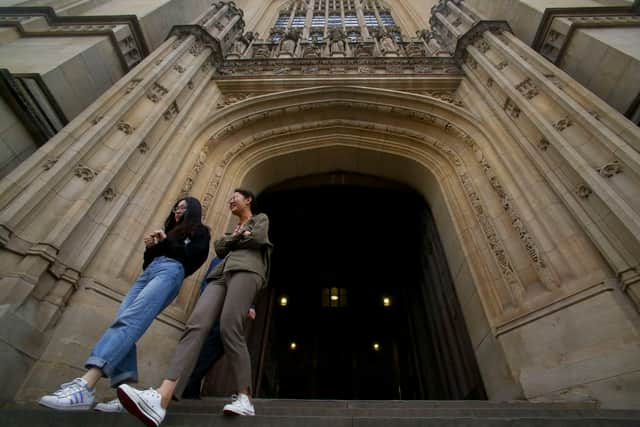Bristol University’s ’neopronouns’ guide includes advice on how to address people who identify as ‘catgender’
and live on Freeview channel 276
Staff at the University of Bristol are being given guidance on neopronouns and emerging gender identities such as ‘catgender’.
The university’s ‘Using Pronouns at Work’ guide advises staff to include their own pronouns such as he/him or she/her when introducing themselves to students and other staff, helping others feel comfortable and ensuring the institution is a ‘welcoming and supportive’ place for all.
Advertisement
Hide AdAdvertisement
Hide AdIt also links to a website that says some people may use ‘emojiself pronouns’ or nya/n pronouns (’nyan’ is the Japanese word for meow) as they identify as ‘catgender’, a xenogender in which one strongly identifies with cats or other felines.
The guides goes on to say that a person’s identity is made up of multiple parts, gender being just one of these, and being mid-identified either accidentally or on purpose is uncomfortable for anyone.
According to the document, this is particularly the case for trans and non-binary people, who will have undertaken a ‘long and difficult journey’ to be recognised as their correct gender.
However, there is no expectation that staff ‘must commit every possible pronoun to memory’ and using pronouns on email signatures or as part of meeting introductions is not a mandatory requirement.


Advertisement
Hide AdAdvertisement
Hide AdA University of Bristol spokesperson said that the instiution was ‘committed’ to gender inclusion.
“The correct use of pronouns is important to some members of our University community,” they said.
“The information on our website is designed to help people understand the different variations and nuances that this covers.”
The university later updated its statement adding that the link to an external LGBTA Wiki page had been removed and that the links were not part of its official guidance.
Comment Guidelines
National World encourages reader discussion on our stories. User feedback, insights and back-and-forth exchanges add a rich layer of context to reporting. Please review our Community Guidelines before commenting.
